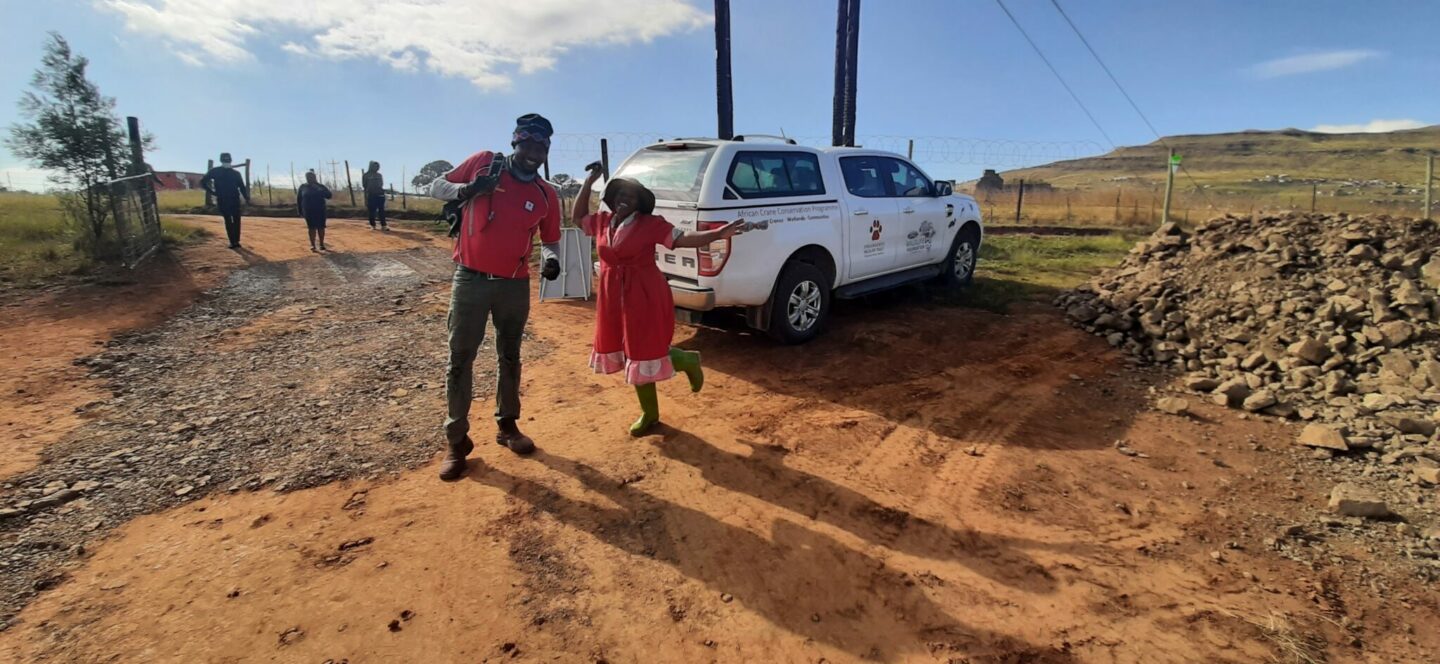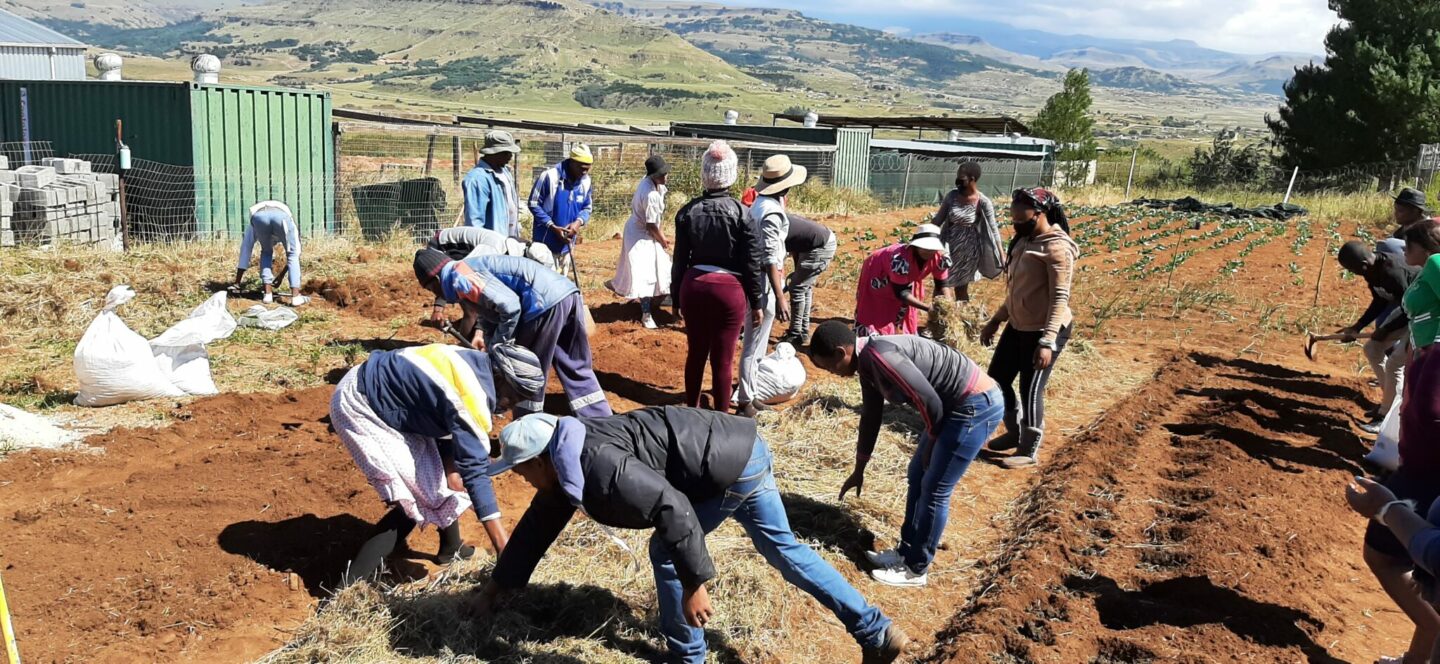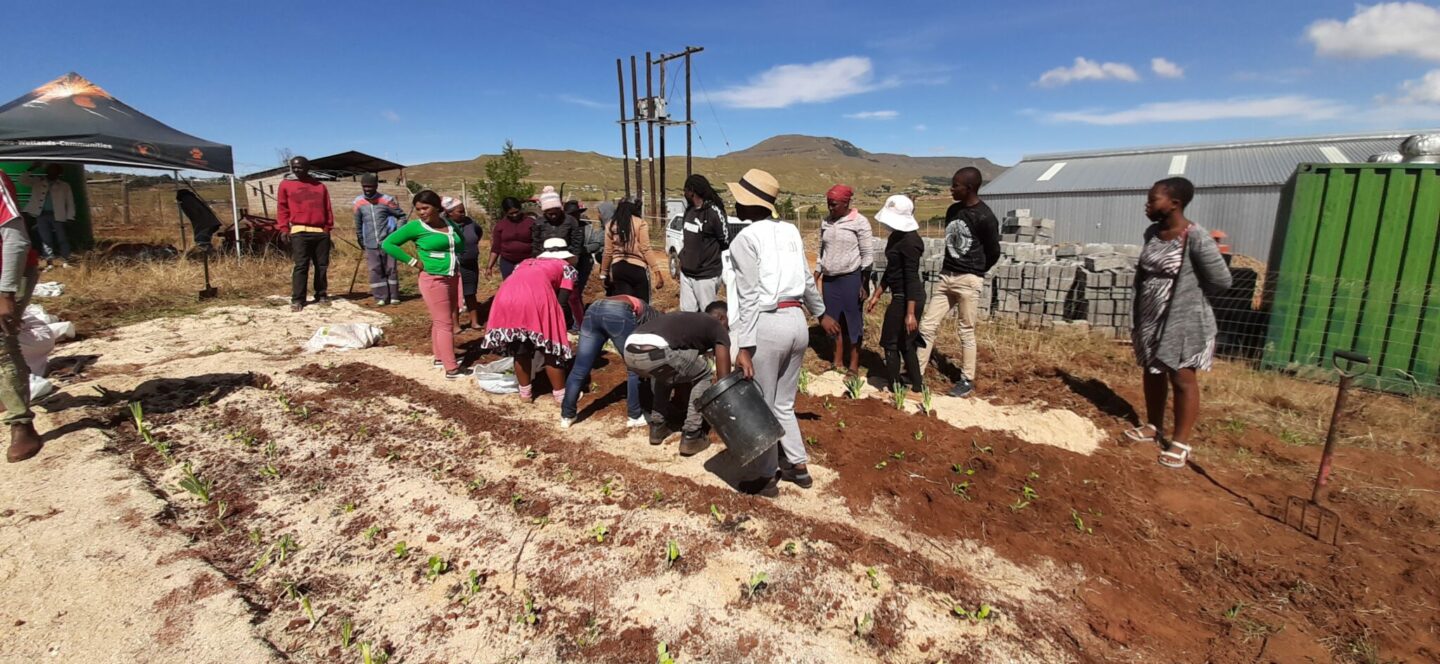WHAT DOES PERMACULTURE HAVE TO DO WITH CRANES?
Lara Jordan, laraj@ewt.org.za, and Samson Phakathi, samsonp@ewt.org.za, EWT’s African Crane Conservation Programme
 Samson Phakathi Senior Community Officer ACCP and Ntombenhle Mtambo permaculture trainer
Samson Phakathi Senior Community Officer ACCP and Ntombenhle Mtambo permaculture trainer
 Youth in KwaMkhize learning how to construct permaculture gardens using available resources
Youth in KwaMkhize learning how to construct permaculture gardens using available resources
In 2020, we saw some of the most desperate situations arise across South Africa due to the Covid-19 virus and the effects of lockdown on vulnerable communities. However, as individuals, how we react to a traumatic or desperate situation varies from person to person. In KwaMkhize, a community adjacent to the Giants Castle area of the Maloti-Drakensberg Nature Reserve, a group of youth who had felt the harsh effects of hunger requested help from the EWT to change the future by creating not only a food security garden but a sustainable garden. The Traditional Authorities are in full support of their endeavours and were delighted to have the training they needed to drive food security projects within the community.
Permaculture is the development of agricultural ecosystems intended to be sustainable and self-sufficient. Much like no-till farming, permaculture protects the soil structure of the ground and allows the carbon sequestration capability to remain intact, benefitting the environment. Ntombenhle Mtambo, a locally renowned permaculture trainer, trained over 30 youths passionate about growing their own food and looking after their soil. Nombenhle, however, never tells someone how to do something but rather lets them experience the difference. The youth, therefore, dug and planted a traditional garden, and next to that, they dug a permaculture garden. The aim was to demonstrate to the youth that an understanding of the environment and soil will teach the youth to see the difference between sustainable land use and non-sustainable land use. Ntombenhle is a clever lady like that! The youth have already started digging permaculture gardens in the community to support the most vulnerable individuals, e.g., the elderly.
You may be wondering how developing sustainable gardening helps cranes. In water catchment areas where cranes live, it is vital that the soil structure of grasslands and wetlands on which they rely for breeding is protected and sustainably utilised. In the face of global warming and the effects of climate change, land-use practices need to change to enable the survival of communities and cranes. In addition, no-till farming and gardening protect the land from soil erosion. The mulch formed creates a soak to hold water, vital for sustainability in countries with water shortages like South Africa. We are delighted to continue supporting these enthusiastic and environmentally conscious individuals. We are continuing the training in other crane-sensitive rural communities, and often where little support has been received previously. If you have never seen the difference, then we encourage you to try it out in your own gardens at home!
This project is supported by the Paul King Foundation and N3TC.
 Youth in KwaMkhize learning how to construct permaculture gardens using available resources
Youth in KwaMkhize learning how to construct permaculture gardens using available resources
